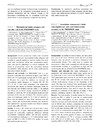Identificador persistente para citar o vincular este elemento:
https://accedacris.ulpgc.es/jspui/handle/10553/41921
| Título: | P122-F. Micronutrient intake adequacy and mortality risk in the PREDIMED study | Autores/as: | Falcón-García, I. Ortiz-Andrellucchi, A. Álvarez Pérez, Jacqueline Estruch, R. Martínez-González, M. A. Corella, D. Salas-Salvado, J. Fito, M. Schroder, H. Toledo, E. Lamuela-Raventos, R. M. Ros, E. Aros, F. Fiol, M. Lapetra, J. Muñoz, M. A. Gómez-Gracía, E. Tur, J. Pinto, X. Ruiz-Gutiérrez, V. Portillo-Baquedano, M. P. Serra-Majem, Ll PREDIMED Study Investigators |
Clasificación UNESCO: | 3206 Ciencias de la nutrición | Fecha de publicación: | 2018 | Publicación seriada: | European journal of clinical investigation (Print) | Conferencia: | 52nd Annual Scientific Meeting of the European Society for Clinical Investigation “Precision medicine for healthy ageing”, Barcelona, Spain, 30th May – 1st June 2018 | Resumen: | Background: Limited prospective studies have examined the association between micronutrient intake adequacy and mortality in general population, previous studies have evaluated such associations taking into consideration participants with specific pathologies or critical conditions. We aimed to prospectively assess the association between micronutrient intake adequacy and all-cause, cardiovascular and cancer-related mortality. Material and methods: The PREDIMED trial is a randomized, controlled trial conducted in Spain from 2003 to 2011 with 7447 participants at high risk for CVD, aged 55 to 80 years. In a post hoc analysis, we assessed the micronutrient intake adequacy for vitamins B1, B2, B6, B12, C, D, E, folic acid, potassium, iron, magnesium, phosphorus and calcium at baseline. Inadequate intake for each nutrient was defined when the intake of the nutrient was below the estimated average requirements (EAR) if available or below the 50% of the adequate intake level for potassium (EAR was not available). We compared participants with inadequate intake for 2, 3 and ≥4 nutrients vs those with one nutrient or none. Main outcomes were all-cause, cancer and cardiovascular mortality and multivariable-adjusted Cox regression models were fitted to estimate hazard ratios (HR, 95% CI). Results: A total of 402 deaths were recorded after a median follow-up of 4·8 years. Multivariable-adjusted models revealed no statistically significant difference between micronutrient inadequate intakes and all-cause mortality (≥4 micronutrients inadequacy vs 0–1 micronutrients inadequacy ref HR 1·44; 95% CI 0·99–2·11) neither for cancer and cardiovascular mortality. Conclusions: No statistically significant association was found between micronutrient intake adequacy and all-cause, cancer, and cardiovascular mortality in elderly subjects at high cardiovascular risk. | URI: | https://accedacris.ulpgc.es/handle/10553/41921 | ISSN: | 0014-2972 | DOI: | 10.1111/eci.12926 | Fuente: | European Journal of Clinical Investigation [ISSN 0014-2972], v. 48 (S1), p. 215-215 |
| Colección: | Ponencias |
Visitas
77
actualizado el 10-ene-2026
Descargas
69
actualizado el 10-ene-2026
Google ScholarTM
Verifica
Altmetric
Comparte
Exporta metadatos
Los elementos en ULPGC accedaCRIS están protegidos por derechos de autor con todos los derechos reservados, a menos que se indique lo contrario.
